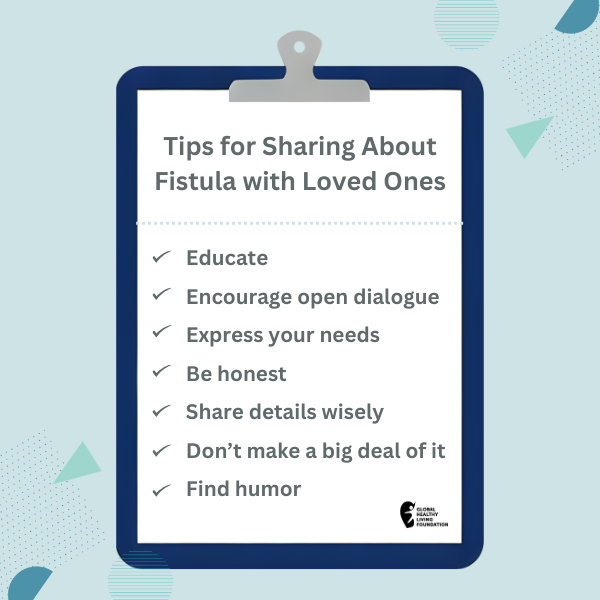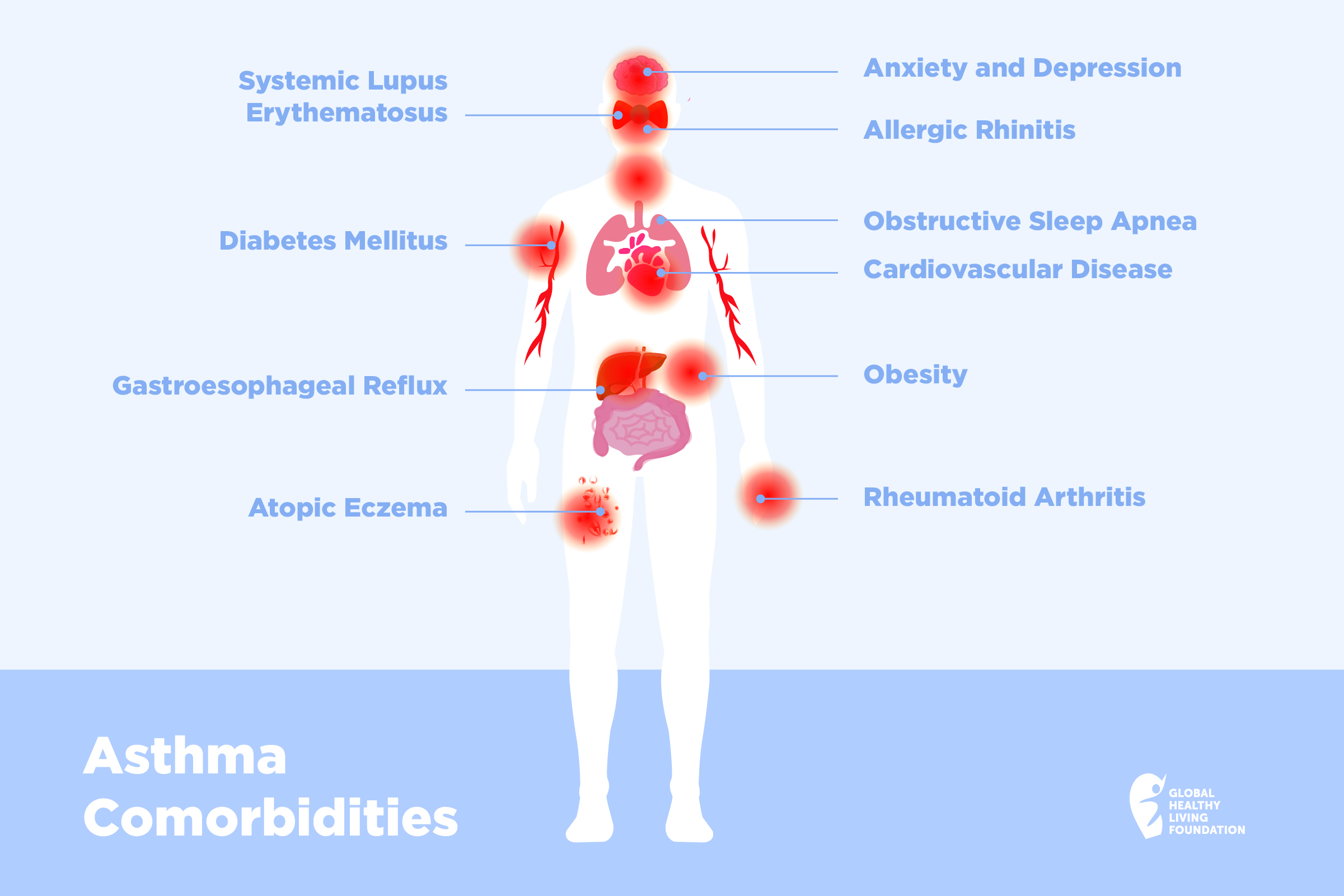Take charge of your asthma and associated conditions. Get tips on teaming up with specialists and confidently advocating for your care.
8 Possible Asthma Triggers and Ways Your Partner Can Support You
8 Possible Asthma Triggers and Ways Your Partner Can Support You
February 1, 2023
Nina Wasserman

Check out “Our Guide to Personalizing Your Asthma Care” for more information on this topic.
Asthma is a complicated disease in which the airways become inflamed, often making it harder to breathe. It affects 300 million people worldwide, and 8 percent of the U.S. population. It can be severe or it can be mild. It can get worse as you age, but in some cases, it can go away. What triggers asthma can be in the air you breathe or it can result from a host of other factors.
An asthma trigger is something that causes the lining of your airways to become inflamed, the muscles around the airways to constrict, and the airways to fill with mucus. Symptoms may include wheezing, coughing, congestion, shortness of breath, and chest tightness.
Unfortunately, asthma is unpredictable, and what causes you to have an asthma attack may not necessarily trigger asthma in someone else. While it may be impossible to avoid all the things that trigger your asthma, you can certainly reduce potential exacerbations by being more aware of your unique triggers. And tell your partner about them, so they can help you stay vigilant.
Here are eight possible triggers you can discuss with your loved ones.
Viral Infections
According to a 2022 study, respiratory viruses, especially RSV and rhinovirus, play a large role in asthma exacerbations. COVID-19 and influenza can also trigger asthma, says Dr. Barbara P Yawn, MD, MSc, FAAFP, Adjunct Professor at University of Minnesota. Furthermore, early childhood infections of this type have been shown to lead to asthma later in life.
These illnesses cause inflammation and the collection of mucus in the airways, which can trigger your asthma. Carly H., a member of the LGBTQ+ community who has had asthma since birth and who now manages it with medication, says she’s had to use her inhaler more frequently since getting COVID.
To prevent illness, make sure hand-washing is a routine for you and your partner. And when your partner does get sick, the best way they can care for you is by keeping their distance and/or masking while they are infectious.
Inhaled Irritants
A 2017 PLOS One study showed the effect of outdoor air pollutants on asthma exacerbations.
The most common triggers were:
- Nitrogen oxide
- Ozone (from the reaction between the sun and pollution)
- Carbon monoxide
- Particulate matter (tiny particles in exhaust from transportation)
Pollution does not always come from outside sources. That cozy wood fire in your backyard can affect your airways. And for many asthma sufferers, tobacco or cannabis smoke is a trigger.
If your partner smokes, you have to have a serious conversation about how you can help them quit, says Dr. Yawn. It’s not enough if they just step outside to have a cigarette. If you can smell the smoke on them, you can still get triggered. Smoking is not good for them — and it’s not good for you.
Allergens
While the spread of pollen is great for plants, it can be challenging for people with asthma. Pollen is the fine yellow powder that is spread from plant to plant by air currents. If you are allergic to pollen and you inhale it, your body will recognize it as an invader and mount an immune response that causes inflammation in the airways. A skin or blood test can determine if pollen is a trigger for you.
Other common allergens, according to Dr. Yawn, include cockroaches, mold, dust mites, and pet dander. If you have a pet allergy, that can be a conflict in your relationship. Dr. Yawn recommends having pet-free zones in your home, and especially keeping them out of the bedroom.
Carly found out that she has seasonal allergies, which adds to her long list of asthma triggers. Her partner has played a critical role in dealing with her asthma. “She’s been really great. She’s been a support system,” she says.
Anxiety and Stress
Getting your stress under control can be difficult — especially if your asthma is causing you stress. Chronic stress can lead to asthma, according to a 2020 study in Clinical Therapy. Moreover, the researchers note that the increased levels of cortisol caused by stress can make your asthma medications less effective.
Showing strong emotions through shouting, crying, or laughing can also provoke an attack. According to the American College of Allergy, Asthma and Immunology (ACAAI), the rapid breathing that is associated with strong emotion can cause the bronchial tubes to constrict, which can trigger asthma.
Be open with your partner about what is causing you stress and anxiety, says Dr. Yawn. “Talking about these things really helps,” she says.
Exercise
Exercise is a common asthma trigger, but the ACAAI says it’s a myth that people with asthma can’t exercise. Exercise makes your heart and lungs stronger and improves your immune system, which can help with your asthma. Your partner can be encouraged to help you get out there and walk, hike, bike, or swim — all great exercises for people with asthma.
Dr. Yawn says sometimes you may feel anxious about exercise, anticipating an attack. “It can help to talk those things through and be reminded to take slow, deep breaths,” she adds. Work with your health care provider to develop a safe exercise plan for you.
Cold Air
That biting, wintry air can literally take your breath away. Extreme cold is a trigger for Carly’s asthma, she says. Wearing a scarf over your mouth to warm up the air before you breathe is a simple and practical way to help. A well-fitted mask can work the same way.
Medications
Aspirin and other nonsteroidal anti-inflammatory drugs and beta blockers can trigger asthma. Dr. Yawn says this is not a common trigger, but it is still a possibility. For those who are affected, be careful with over-the-counter medications that contain these substances.
Not Taking Your Medications
This may seem like an obvious trigger, but if you don’t take your medications, you run the risk of a more serious asthma exacerbation or even hospitalization. Dr. Yawn says asthma is a very manageable, treatable disease and it should not limit you. Get more tips on “Personalizing Your Asthma Care.”
What Your Partner Needs to Know When You’re Triggered
Prepare your partner in case of emergency. Have them learn your triggers and recognize when you need an intervention.
An Asthma Action Plan is something you can share with your partner so they know when you need an intervention during an asthma attack. You can put it on your refrigerator so loved ones have it handy.
Here are some strategies you can share with your partner in case of an asthma exacerbation:
- Use your rescue inhaler or other emergency medication(s) (e.g., albuterol, Ventolin)
- Change locations (e.g., leave the environment, go inside, etc.)
- Open doors or windows
- Cover your mouth/nose with a scarf if outdoors in cold, dry weather
- Wear a well-fitted mask
- Change your clothes
To keep your asthma under control and limit visits to the emergency room, enlist your partner’s support to stay vigilant in managing your triggers. They can also help you prepare for and/or stay calm during an asthma attack.
Get Asthma Support
If you would like to receive emails about asthma support and education, please subscribe to the Global Healthy Living Foundation here.
This article was made possible with support from Amgen and AstraZeneca.
Cecchi L, et al. From triggers to asthma: a narrative review on epithelium dysfunction. European Annals of Allergy and Clinical Immunology. 2022. http://www.eurannallergyimm.com/cont/journals-articles/1152/volume-from-triggers-asthma-narrative-review-5028allasp1.pdf
Interview with Dr. Barbara P Yawn, MD, MSc, FAAFP, Adjunct Professor at University of Minnesota.
Orellano P, et al. Effect of outdoor air pollution on asthma exacerbations in children and adults: Systematic review and multilevel meta-analysis. PLOS One. March 20, 2017. doi: https://doi.org/10.1371/journal.pone.0174050
Palumbo M, et al. Chronic stress and glucocorticoid receptor resistance in asthma. Clinical Therapy. June 2020. doi: 10.1016/j.clinthera.2020.03.002
If you enjoyed reading this article, you’ll love what our video has to offer.
SUBSCRIBE TO GHLF
RELATED POST AND PAGES
_
Was this article helpful?
YesNo







